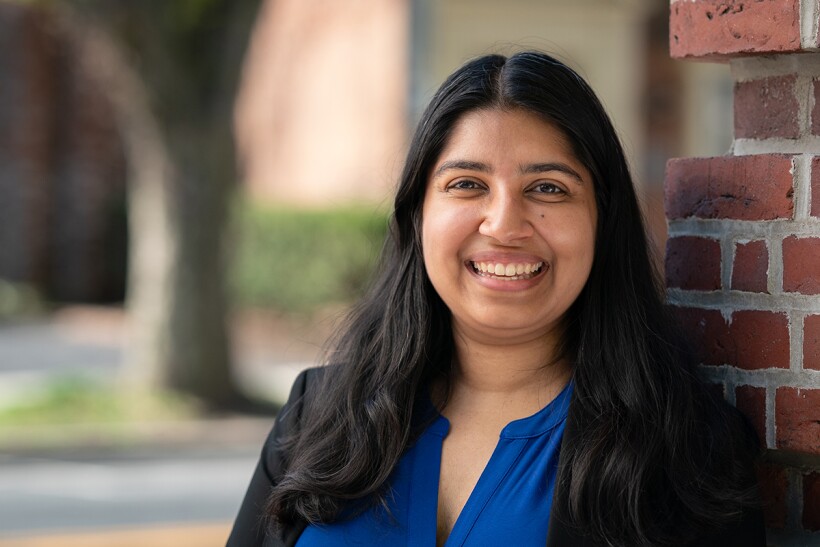Roohi Dalal advocates on Capitol Hill for the astronomy community
DOI: 10.1063/pt.phqe.kkqc
“What can physicists do?

(Photo by Tori Repp/Fotobuddy Photography.)
Roohi Dalal
Deputy director of public policy, American Astronomical Society (AAS)
BS, astrophysics and history, California Institute of Technology, 2018
PhD, astrophysics, Princeton University, 2024
What was your research focus?
To understand the distribution of dark matter in the universe, I looked at how gravitational lensing distorts the shapes of galaxies. I also earned a certificate in science, technology, and environmental policy.
What were you looking for in a job?
I knew that I wanted to do policy, but I didn’t know if I wanted to be in an academic setting or in something where I would interact directly with policymakers.
How did you make the transition to policy?
As a postdoc, I realized I wanted to do something that was government facing. When this opportunity at the American Astronomical Society came up, I thought I was not qualified because the job ad asked for five years of experience. I applied anyway. I left my postdoc early to start here in October 2024.
How do you spend your time?
I work on legislative and regulatory aspects in three areas related to astronomy: funding, workforce, and access to the night sky.
I am on the Hill every week or two talking to committee staff and congressional members about our priorities and how we can help. On the regulatory side, I submit comments—to the FCC [Federal Communications Commission] on satellite regulations, for example, or to the Department of Homeland Security to oppose a proposal to limit the duration of student visas to four years.
I go to receptions and happy hours. Networking is important.
What do you like about your job?
I feel that I have agency—that there is something I can do about the times we are in.
How do you use physics in your job?
I work with volunteer committees made up of professional astronomers. A lot of it is talking and distilling what they say so that it’s understandable to people in the government.
What new skills did you need to learn?
I’m still developing my communication skills. In legislative offices, the staffers have 100 things going on; how do you grab their attention? I am also learning to multitask, prioritize, and triage.
Anything else?
When I was hired, the salary range was posted as $118 000–$130 000. Also, all PhDs at the AAS can choose to do research 20% of the time.





